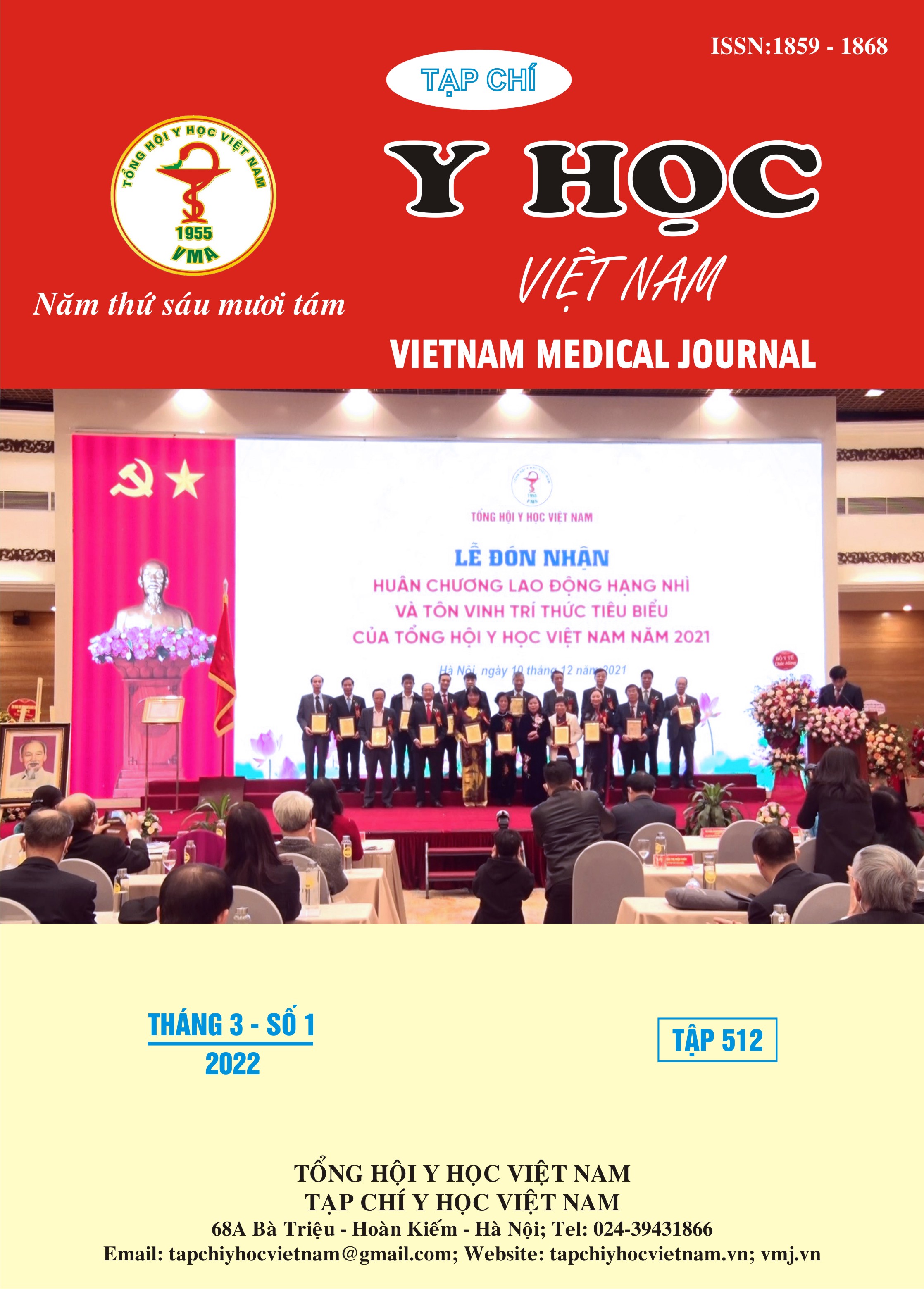THỰC TRẠNG RỐI LOẠN PHÂN LIỆT CẢM XÚC LOẠI TRẦM CẢM
Nội dung chính của bài viết
Tóm tắt
Chúng tôi thực hiện nghiên cứu với mục tiêu tìm hiểu thực trạng của rối loạn phân liệt cảm xúc loại trầm cảm ở người bệnh đến khám và điều trị tại Viện Sức khỏe Tâm thần – bệnh viện Bạch Mai. Đây là một nghiên cứu sử dụng phương pháp mô tả cắt ngang, thực hiện trên 40 người bệnh được chẩn đoán rối loạn phân liệt cảm xúc loại trầm cảm theo tiêu chuẩn chẩn đoán của ICD – 10 (F25.1). Kết quả cho thấy người bệnh rối loạn phân liệt cảm xúc có tuổi trung bình là 30,3±8,2 tuổi, thường xuất hiện ở nữ giới hơn nam giới và tỉ lệ nữ / nam ≈ 1,4 /1. Đa số đã kết hôn (55,0%), có trình độ học vấn cao ở bậc đại học - cao đẳng (65,0%) và chủ yếu sống vùng nông thôn (72,5%). Có tới 32,5% bị chẩn đoán nhầm là rối loạn loạn thần cấp (17,5%) hoặc rối loạn trầm cảm (15%). Khoảng 20% người bệnh có rối loạn phân liệt cảm xúc có người thân có rối loạn tâm thần và có tới 50% các trường hợp khởi phát sau một sang chấn tâm lý.
Chi tiết bài viết
Từ khóa
trầm cảm, loạn thần, phân liệt cảm xúc trầm cảm
Tài liệu tham khảo
2. Azorin JM, Kaladjian A, Fakra E. [Current issues on schizoaffective disorder]. L’Encephale. 2005;31(3):359-365. doi:10.1016/s0013-7006(05) 82401-7
3. Association AP. Diagnostic and Statistical Manual of Mental Disorders, 5th Edition: DSM-5. 5th edition. American Psychiatric Publishing; 2013.
4. Benabarre A, Vieta E, Colom F, Martínez-Arán A, Reinares M, Gastó C. Bipolar disorder, schizoaffective disorder and schizophrenia: epidemiologic, clinical and prognostic differences. Eur Psychiatry J Assoc Eur Psychiatr. 2001; 16(3): 167-172. doi:10.1016/s0924-9338(01)00559-4
5. Ndetei DM, Khasakhala L, Meneghini L, Aillon JL. The relationship between schizoaffective, schizophrenic and mood disorders in patients admitted at Mathari Psychiatric Hospital, Nairobi, Kenya. Afr J Psychiatry. 2013;16(2):110-117. doi:10.4314/ajpsy.v16i2.14
6. Pinna F, Sanna L, Perra V, et al. Long-term outcome of schizoaffective disorder. Are there any differences with respect to schizophrenia? Riv Psichiatr. 2014;49(1):41-49. doi: 10.1708/1407.15624
7. DeRosse P, Burdick KE, Lencz T, Siris SG, Malhotra AK. Empirical Support for DSM-IV Schizoaffective Disorder: Clinical and Cognitive Validators from a Large Patient Sample. PLoS ONE. 2013;8(5):e63734. doi:10.1371/journal.pone.0063734
8. Santelmann H, Franklin J, Bußhoff J, Baethge C. Diagnostic shift in patients diagnosed with schizoaffective disorder: a systematic review and meta-analysis of rediagnosis studies. Bipolar Disord. 2016;18(3):233-246. doi:10.1111/ bdi.12388


